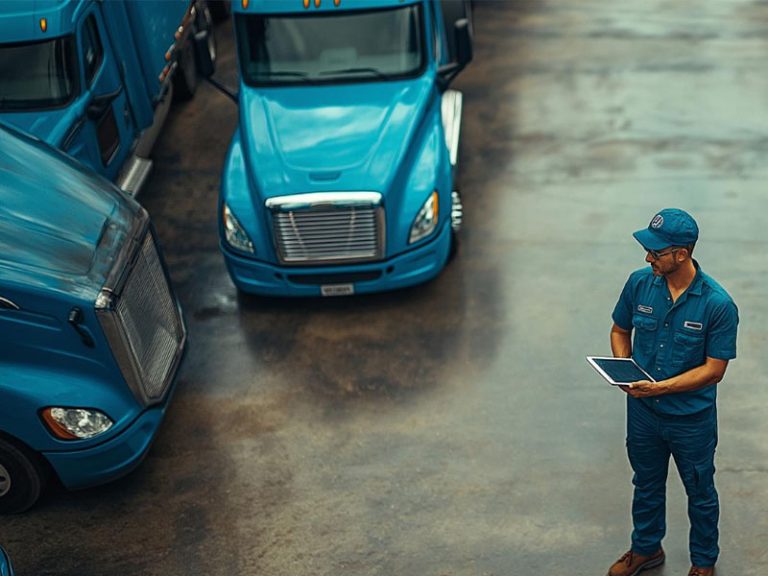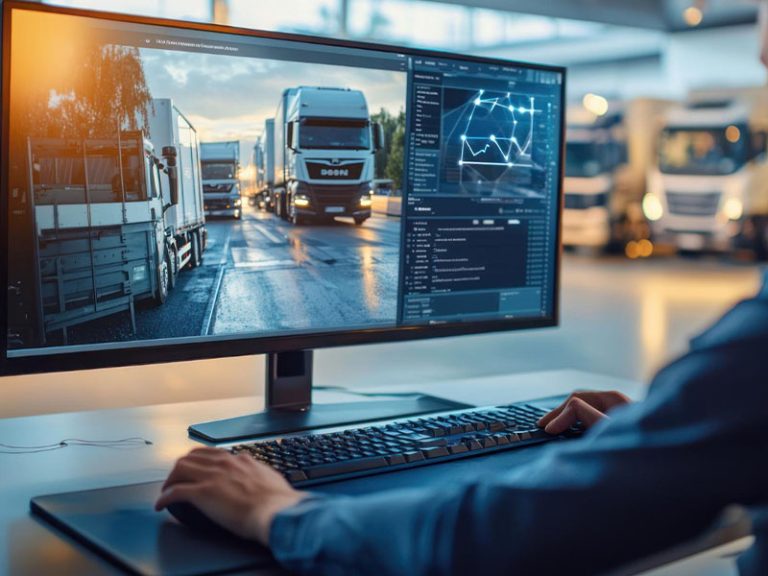How to meet fleet compliance effectively?

For an outsider, a fleet management system might seem to be a pretty simple process. However, the ones working in the field can tell you that it is not the case. There are several things to consider before stepping into this business, like acquiring vehicles, meeting compliance, managing operations, and much more. Although the fleet management systems help a bit, the need for an in-house manager is undeniable.
Despite being an integral aspect of vehicle management, compliance often gets ignored by managers. They take it for granted, and that costs them a lot of money and effort. Do you also struggle to meet your fleet compliance? If yes, then this blog will be beneficial for you.
Create a Plan:
A commercial fleet has to fulfill several compliance requirements. It becomes challenging for the managers to keep track of all of them. However, creating a solid plan can help in meeting all the needs effectively. Create a to-do list for all the tasks and prepare a plan for every individual job. You have to consider all the possible aspects while devising a plan for it to be successful.
While creating a plan, gathering requirements is the first step, followed by organizing them. As a manager, you have to distribute the compliance-related tasks among different employees. For example, you should assign vehicle fitness to technicians or drivers. You should also add regular auditing and reporting to check the progress.
Ensure Safety:
Safety is usually the topmost priority of the majority of fleet managers. Many compliance requirements are based on vehicle and driver safety. For example, the loading capacity of a truck or obtaining a driving license is essential for drivers. It is a successful practice to implement a safety policy. Considering all the precautionary measures in the policy results in the fulfillment of compliance requirements.
Read Also: Tips to Hire Best Drivers for Your Fleet
The manager should implement risk management in every operational aspect. Fleet management systems are essential to keep a close eye on every action. It checks the drivers’ behavior during trips, like identifying speeding, fast turns, and harsh braking. In addition to that, the software also detects the violation of traffic rules and compliance requirements, helping prevent legal trouble.
Focus on Driver Safety Protocols:
The drivers’ safety is an integral part of compliance. Therefore, it is essential to take all the possible steps to ensure that. There are safety checklists provided by the authorities that need to be met by the fleet. For example, the regular fleet inspections are essential for the drivers. You should update the DVIR (Driver Vehicle Inspection Report) daily at the start and end of the day.
It is essential to document the compliance requirement to verify it to the authorities. When all the drivers’ safety protocols are fulfilled, there is a lower chance of any compliance violations during traveling. For example, a well-maintained vehicle cannot be deemed ineligible for commercial trips. As a manager, you should ensure that your drivers are taking all the safety measures to keep your operations compliant.
The drivers’ insurance is also essential to cater to emergencies in a better way. It helps companies to bear the loss of an accident and handle such situations without much financial loss.
Focus on Preventive Maintenance:
The concept of preventive maintenance is based on preventing the vehicles’ wear and tear by doing timely service and repair. Managers should proactively anticipate the need for adequate upkeep of the fleet. One of the significant components of preventive maintenance is inspection. Managers should examine the condition of every vehicle regularly to find the issues.
Real Also: What are Fleet Inspections-Why Are They So Important
With the fleet management systems, the managers can organize the maintenance tasks on a to-do list. They can set notification alerts for them as well to do everything on time. Preventive maintenance keeps the vehicles in a decent condition, guaranteeing the fulfillment of compliance.
Compliance is an integral part of the fleet business. You should never ignore it, as doing so can have dire consequences for the company. A manager should prioritize it to fulfill it as soon as possible. The process of meeting compliance is not that difficult if you approach it in the right way. Following the guidelines mentioned above can help you do so successfully.
Read More: How does White Label GPS Tracking Software Track a device location


